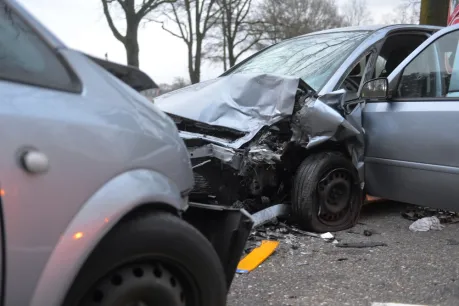Head-On Collisions: What Victims Need to Know About Their Legal Rights

Injured?
Head-on collisions are among the most severe and life-altering car accidents on the road. They happen suddenly, often with no time to swerve, brake, or protect yourself. And because both vehicles are usually traveling toward each other at high speed, the force of impact can be catastrophic.
For survivors, the aftermath is often overwhelming. Serious injuries, long-term recovery, and emotional trauma are just the beginning. If you or someone you love has been hurt in a head-on crash caused by another driver’s negligence, you may be entitled to compensation, and you don’t have to face the legal process alone.
What Causes Head-On Collisions?
Head-on collisions usually occur when one driver crosses into the path of oncoming traffic. These accidents can happen on rural roads, city streets, highways, or entrance ramps. In most cases, a driver makes a preventable mistake with devastating consequences.
Some of the most common causes of head-on crashes include:
- Distracted driving, such as texting or looking at a GPS while behind the wheel
- Impaired driving due to alcohol, drugs, or fatigue
- Speeding, especially while making unsafe passes on two-lane roads
- Wrong-way driving on highways or off-ramps
- Poor road conditions or visibility, which can cause disorientation or overcorrection
While environmental factors may play a role, most head-on collisions are caused by human error and could have been avoided with greater care and attention to the road.
The Devastating Impact of a Head-On Crash
Because both vehicles are typically in motion, the force of a head-on crash is far greater than in most other types of collisions. The results can be catastrophic.
Common injuries from head-on collisions include:
- Traumatic brain injuries (TBIs)
- Spinal cord damage and paralysis
- Fractures and broken bones
- Internal organ injuries or bleeding
- Severe cuts, burns, or disfigurement
- Psychological trauma, including PTSD and anxiety
These injuries often require emergency surgery, hospitalization, long-term rehabilitation, or permanent adjustments to daily life.
Who’s At Fault in a Head-On Collision?
In most cases, the driver who veers out of their lane or enters the wrong lane is at fault. Every driver has a legal duty to operate their vehicle safely and to remain in their designated lane. Failing to uphold this duty can be considered negligence.
However, determining fault may still require investigation. Insurance companies may argue that road conditions or mechanical failure contributed to the accident. In some cases, faulty signage, defective auto parts, or poor road design may contribute to the crash. A thorough legal review can identify all liable parties and hold them accountable for their actions.
Holding the right party accountable for the incident is imperative, particularly in states that follow comparative negligence laws, where each party’s degree of fault can impact the amount of compensation awarded. If liability is misassigned or left unchallenged, injured victims may receive far less than they deserve or, in some cases, nothing at all.
What to Do After a Head-On Collision
If you’re involved in a head-on crash, your health and safety come first. Seek immediate medical attention, even if you think your injuries are minor. Some trauma, especially to the brain or spine, may not show symptoms right away.
To protect your potential claim, you should also:
- Document the scene with photos and videos, if you’re able.
- Exchange contact and insurance information with the other driver.
- Obtain a copy of the police report.
- Keep track of medical bills, treatment records, and missed work.
- Avoid discussing fault or injuries with the insurance company until you’ve spoken with an attorney.
Time matters in these cases, not just for your recovery, but for your ability to build a strong legal claim.
How a Morgan & Morgan Attorney Can Help
Head-on collision cases are often high-stakes, involving serious injuries and complex liability questions. An experienced car accident lawyer can help protect your rights and seek compensation for your losses.
With the help of an attorney, you may be able to recover damages for:
- Medical expenses and future treatment
- Lost wages and reduced earning capacity
- Pain and suffering
- Emotional distress
- Property damage
- Permanent disability or disfigurement
If a loved one was killed in a head-on crash, you may also be eligible to file a wrongful death claim to help cover funeral costs and loss of companionship.
Your attorney will handle the legal process while you focus on healing. That includes investigating the accident, consulting experts, negotiating with insurance companies, and, if needed, filing a lawsuit on your behalf.
Morgan & Morgan: For The People.
At Morgan & Morgan, we’ve seen firsthand the devastating impact of head-on collisions. That’s why we fight for people, not powerful insurance companies. If you were injured in a crash caused by someone else’s negligence, you don’t have to face it alone.
Contact us today for a free, no-obligation case evaluation.

We've got your back
Injured?
Not sure what to do next?
We'll guide you through everything you need to know.
